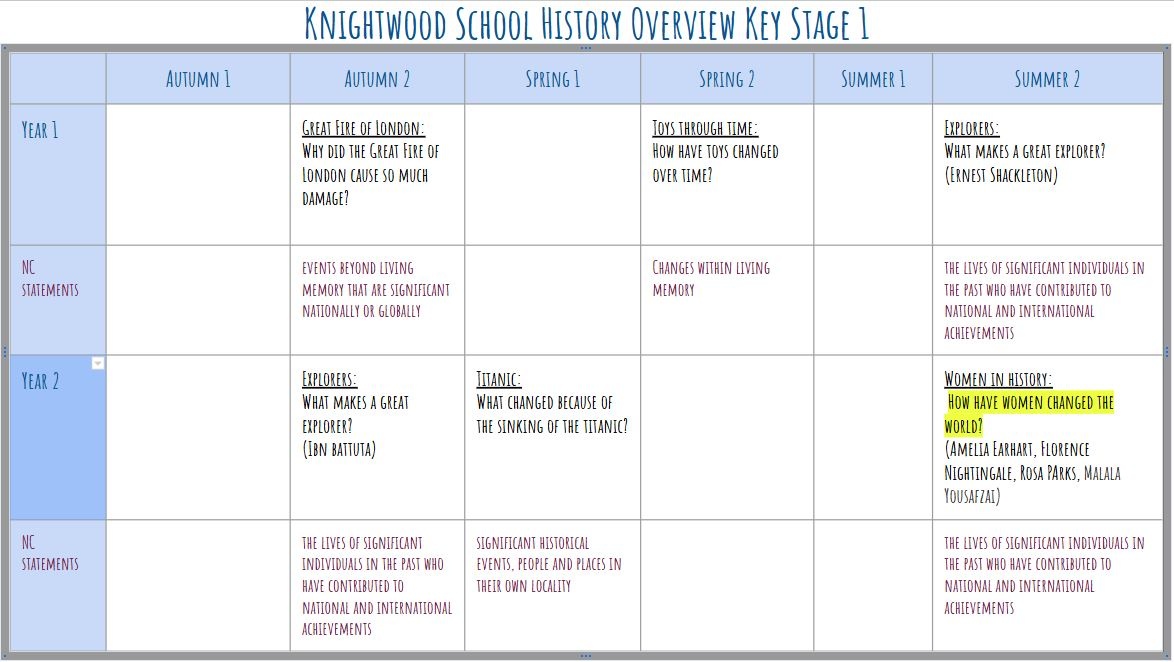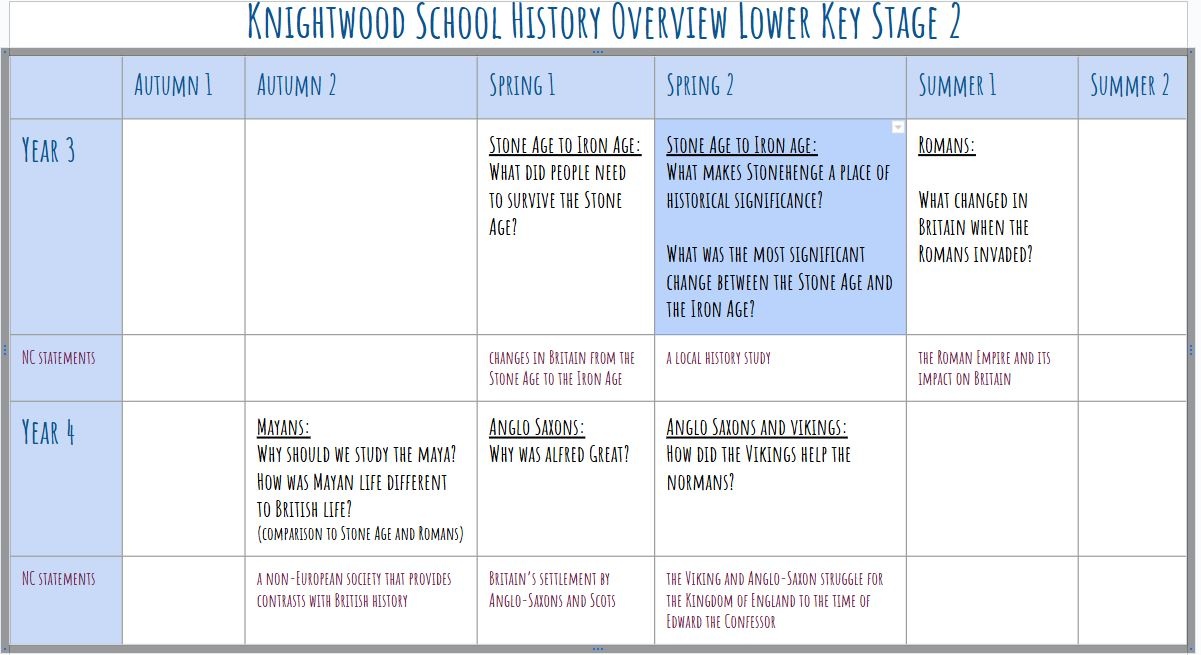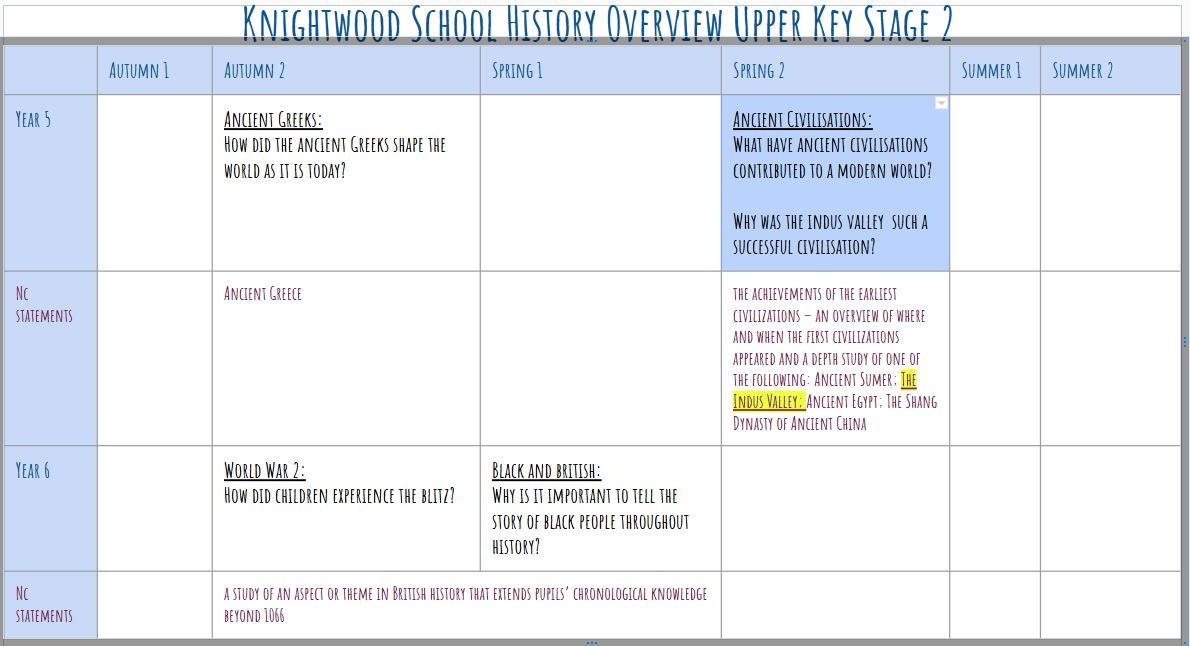History
History at Knightwood enables children to think like historians and encourages curiosity about the past though enriched learning experiences. We develop children’s understanding of their heritage, their local area, Britain, Europe and the wider world.
Intent:
History at Knightwood is accessible for all and is taught in an active way that has a clear purpose and makes learning memorable for children so that they know more, remember more and understand more.
Teaching focusses on helping children to work as historians and develop historical skills. Units build towards an outcome to give the learning purpose. Children will build an understanding of chronology, characteristic features, cause and consequence, change and continuity, significance and interpretation through historical enquiry.
The curriculum is coherently planned and sequenced to ensure that meaningful links are made between previous and future learning and other subjects to strengthen connections and understanding.
Children will gain an understanding and empathise with the complexity of people’s lives and how events from around the world impacted groups of people differently. There are many opportunities for our curriculum to be enriched through visitors, trips and historical events.
Implementation:
Our curriculum is progressively planned and follows an enquiry-based approach where each topic is framed around a key question that scopes and guides the learning. Golden Threads (substantive concepts) reoccur in topics across the key stages which enables children to gain a good understanding of chronology and make links between different periods of history.
Learning is made more memorable through encounters with a range of experiences and high-quality texts designed to enrich children’s learning, supporting their immersion and enjoyment.
Children will explore how other cultures have had a major impact on the development of “British history” in order to develop a better understanding of our multicultural society.
History is also celebrated through the exploration of whole school themes (Remembrance and Black History).
There are opportunities for retrieval throughout our units to ensure that children know more, remember more and understand more.
Impact:
The impact of our curriculum is that children have a positive and enthusiastic attitude towards history. They talk confidently about the skills and knowledge they have acquired. Children record their learning in different ways to ensure our curriculum is accessible for all.
Therefore, impact is measured through the following methods: pupil conferencing, images of practical learning, moderation of written work in their books, low stake quizzing and a celebration of learning at the end of each unit.
Teachers use careful assessment for learning through targeted questioning to identify misconceptions which they address through adjustments to planning and teaching.
See below for how learning in history is organised throughout the school and how that links to the National Curriculum.


